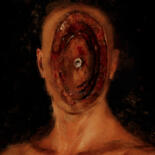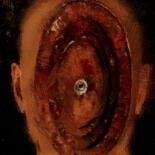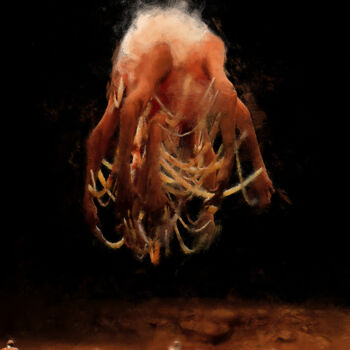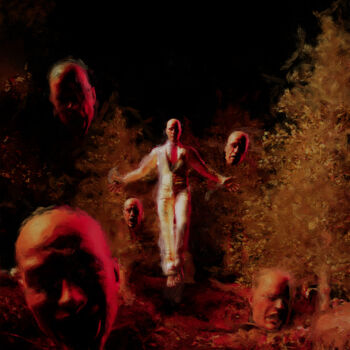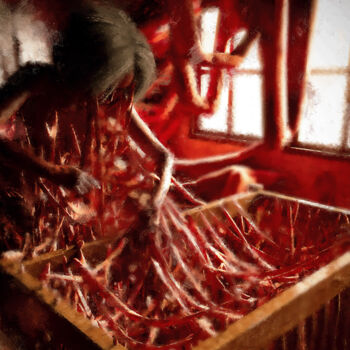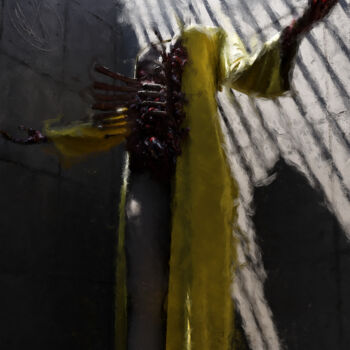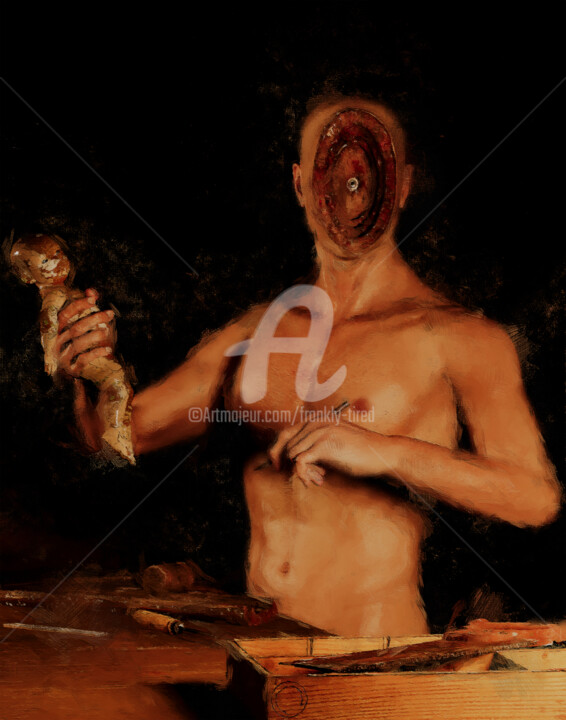

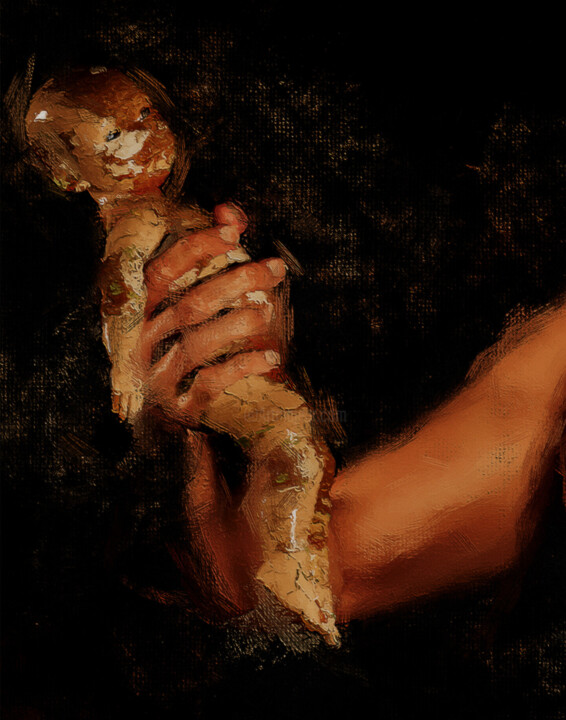
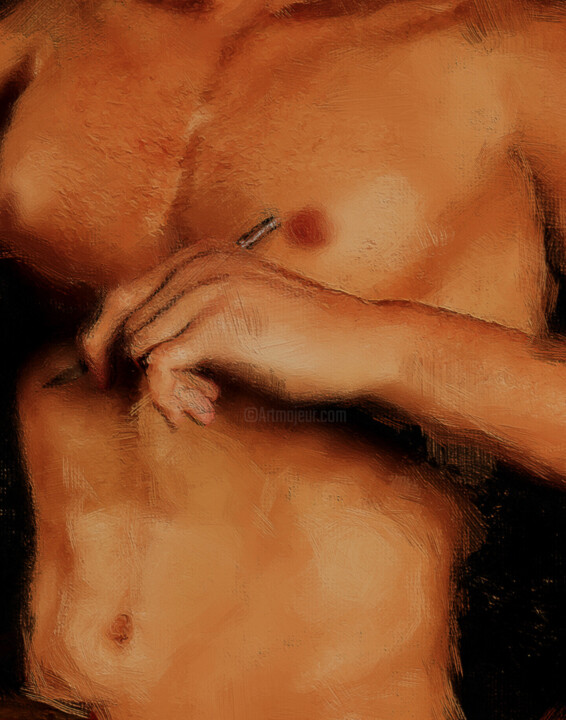
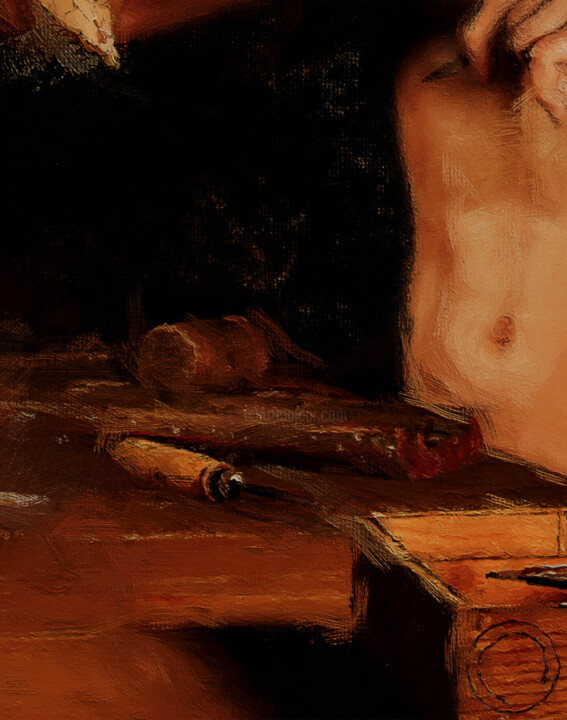



Let us know if you would like to see more photos of this artwork!
- Back of the work / Side of the work
- Details / Signature / Artwork's surface or texture
- Artwork in situation, Other...
Ante Pater (2024) Digital Arts by Francisco Tabakman (Frankly Tired)
More info
- Packaging (Tube) All artworks are shipped with a premium carrier, carefully protected and insured.
- Tracking Order tracking until the parcel is delivered to the buyer. A tracking number will be provided so that you can follow the parcel in real-time.
- Delay Worldwide delivery in 3 to 7 days (Estimate)
- Customs not included The price does not include customs fees. Most countries have no import tax for original artworks, but you may have to pay the reduced VAT. Customs fees (if any) are to be calculated on arrival by the customs office and will be billed separately by the carrier.
More info
- Trackable Online Certificate of Authenticity Authenticity Certificates can be verified online at any moment by scanning the artwork code.
- Artist Value Certification Experts study the work and career of an artist then establish an independent and reliable average price value. The average price value situates the artist on a price range for a given period. The experts may also be asked to establish a more precise estimate for a particular work.
More info
100% secure payment with SSL certificate + 3D Secure.
More info
This image is available for download with a licence
-
Original Artwork (One Of A Kind)
Digital Arts,
Digital Painting
/
3D Modeling
/
2D Digital Work
on Paper
- Dimensions Height 39.4in, Width 27.6in
- Artwork's condition The artwork is in perfect condition
- Framing This artwork is not framed
- Categories Digital Arts under $1,000 Surrealism Dark Fantasy
La diversidad de herramientas de madera se convierte en un símbolo de la creación minuciosa del padre-dios, quien, como un artífice divino, busca perfeccionar su creación. Cada herramienta representa una parte de la compleja maquinaria divina destinada a esculpir a la humanidad. El bebé, en este contexto, se convierte en un ser moldeado a la imagen y semejanza del "dios padre". Sin embargo, en lugar de reflejar la benevolencia divina, la escena sugiere un acto más oscuro y perturbador.
La cuchilla utilizada para esculpir al bebé puede interpretarse como el poder divino que da forma a la existencia humana. Sin embargo, en este contexto, la representación se vuelve inquietante, ya que revela una deidad narcisista y obsesivo-compulsiva, más interesada en la perfección superficial que en el bienestar genuino de su creación.
La presencia del símbolo arcano en la caja de herramientas adquiere una nueva dimensión en este contexto religioso. Este símbolo, apenas perceptible, podría asociarse a la complejidad de las intenciones divinas, ocultas y misteriosas para aquellos a quienes se les ha dado forma. La falta de empatía del "dios padre" se refleja en la oscuridad que lo rodea y en la ausencia de un rostro, excepto por el túnel de carne y el único ojo que observa al espectador.
En esta interpretación, la lámina sugiere una crítica a las dinámicas religiosas que presentan a la divinidad como un ser que busca perfeccionar a la humanidad sin considerar su bienestar genuino. La oscuridad que envuelve al "dios padre" señala la falta de claridad en las intenciones divinas, dejando a los creyentes en un estado de incertidumbre y temor.
Por otro lado, la descripción de la lámina desde la perspectiva psicológica ofrece una visión impactante de la paternidad narcisista y los rasgos del trastorno de personalidad obsesivo-compulsivo. La imagen revela un hombre rodeado de diversas herramientas de madera, con un bebé atrofiado y lastimado en sus manos. Este hombre, aparentemente el padre, utiliza una cuchilla para esculpir al bebé, un acto grotesco que sugiere la búsqueda de una imitación perfecta sin considerar el daño infligido al hijo.
La presencia de herramientas de madera enfatiza la naturaleza meticulosa y detallada del comportamiento obsesivo-compulsivo. Cada herramienta representa un intento del padre por controlar y manipular la realidad, imponiendo su visión distorsionada de perfección. La elección de madera como material subraya la rigidez y la inflexibilidad asociadas con los rasgos obsesivo-compulsivos.
El bebé, que debería ser una figura vulnerable y cuidada, se presenta como una víctima de la obsesión paterna. La cuchilla utilizada para esculpir simboliza la invasión del espacio personal y la integridad del hijo. El hecho de que el bebé esté atrofiado y lastimado sugiere los efectos devastadores de la paternidad narcisista, donde el bienestar del hijo es sacrificado en aras de la búsqueda implacable de la perfección.
La caja de herramientas revela un símbolo arcano, casi imperceptible debido a su pequeño tamaño. Este detalle simboliza la complejidad y la oscuridad de la psique del padre. El narcisismo en la paternidad se manifiesta en el deseo de crear una versión idealizada de sí mismo a través de la manipulación del hijo. El símbolo arcano, apenas visible, refleja la naturaleza oculta y misteriosa de los motivos del padre narcisista.
La oscuridad que rodea al hombre y la falta de rostro
, excepto por un túnel de carne que revela un único ojo, sugieren la falta de empatía y conexión emocional. El túnel de carne representa un enfoque unidireccional y egoísta hacia la relación paterno-filial. La única mirada directa al espectador desde el ojo sugiere una interrupción en el acto, como si el padre hubiera sido sorprendido en medio de su obsesiva manipulación.
El trastorno de personalidad obsesivo-compulsivo se evidencia en la necesidad de control y perfección, representada por las herramientas meticulosas y la actitud despiadada hacia el bebé. El narcisismo, por otro lado, se revela en la falta de consideración por el bienestar del hijo, siendo utilizado como un objeto para la gratificación del padre. El símbolo arcano, apenas perceptible, añade una capa de misterio a la psique narcisista y obsesiva del padre.
Related themes
"The creations of Frankly Tired transcend the limits of conventional artistic expression. They act as mirrors reflecting situations marked by intrusive and violent thoughts, exploring nightmares, frustrations, and the accumulated suffering of those who have clashed with a society incapable of understanding the unusual, the unheard-of, and the different. Its purpose is not limited to mere creative exercise; it seeks to honor those who lost the battle against depression, anxiety, and other mental conditions, while sharing its own struggle with these conditions.
Frankly Tired strives to imbue its works with a deeper dimension, urging the viewer to appreciate the neurodivergent perspective. Through challenges and reflections, it invites introspective analysis of past experiences. Its artistic vision aspires to connect the observer with emotions that they may not have fully explored.
Abandoned liminal spaces or sometimes inhabited by threatening golems. These are the landscapes presented to us as a way of shaping fears and frustrations. Its figures and spaces are created through code. The brush is replaced by mathematics and algorithms. The results are sought, but there is an element of chance in the whole game, the ghost in the machine interpreting the user/artist's commands. Unlike images generated by Artificial Intelligence, Frank's work focuses on controlling the form; the images are generated from the artist's imagination.
Just as Bacon studied movement in search of a more cerebral figuration, Frank subjects the machine to calculations about the texture and physics of its objects. A look at art from a technical perspective seldom seen in the national scene, if not unprecedented."
Daniel Milessi Arcondo
-
Nationality:
PARAGUAY

- Date of birth : 1988
- Artistic domains:
- Groups: Contemporary Paraguayan Artists


